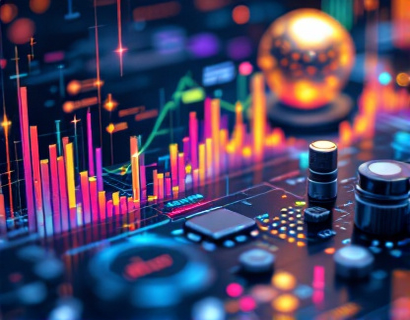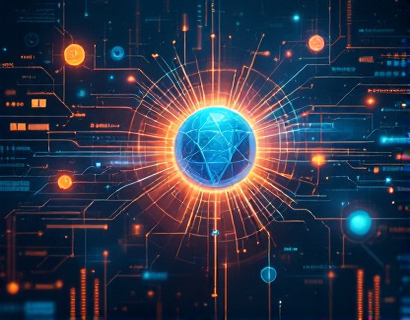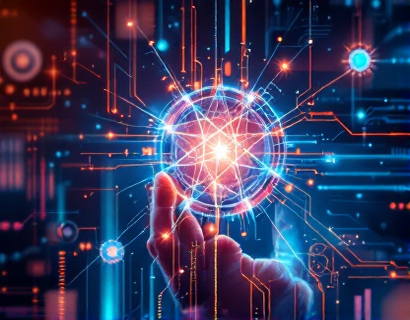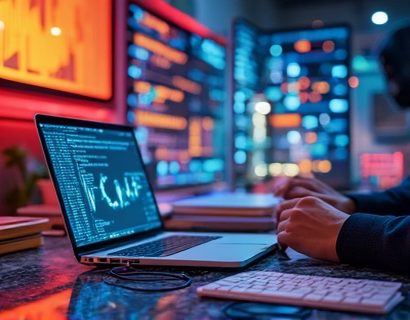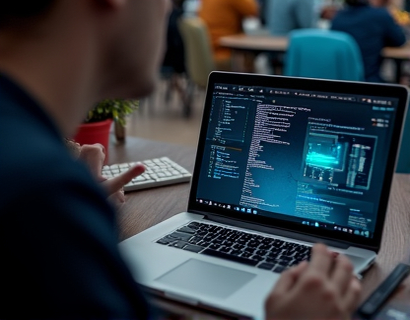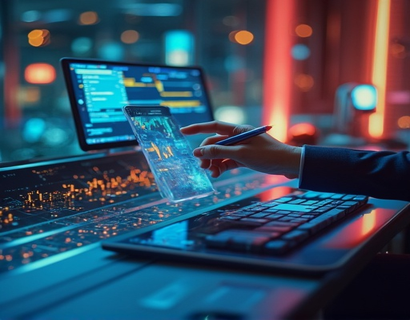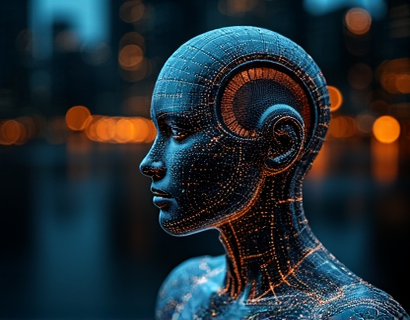AI and Crypto Synergy: Revolutionizing User Experiences in the Digital Ecosystem
The integration of artificial intelligence (AI) and cryptocurrency is ushering in a new era of digital innovation, transforming the way users interact with technology and each other. This synergy is not just a technological advancement but a paradigm shift that is redefining the digital landscape. By combining the decentralized and secure nature of blockchain with the intelligent and adaptive capabilities of AI, we are witnessing the creation of more intuitive, efficient, and user-centric digital experiences.
The foundation of this synergy lies in the unique properties of both technologies. Cryptocurrency, built on blockchain, offers a secure and transparent method for transactions, eliminating the need for intermediaries and reducing costs. AI, on the other hand, excels in processing vast amounts of data, recognizing patterns, and making predictions, thereby enhancing the functionality and personalization of digital services. When these two technologies converge, the potential for innovation is immense.
Enhanced Security and Trust
One of the most significant benefits of the AI and crypto synergy is the enhancement of security and trust in digital transactions. AI algorithms can detect and prevent fraudulent activities by analyzing patterns and anomalies in real-time. This proactive approach to security is crucial in the crypto space, where transactions are inherently vulnerable to cyber threats. By integrating AI-driven security measures, blockchain networks can ensure that transactions are not only secure but also verifiable and tamper-proof.
Moreover, the use of smart contracts, which are self-executing contracts with the terms directly written into code, can be optimized with AI to automate and enforce contractual obligations more efficiently. AI can analyze the context and conditions of a smart contract, ensuring that all parties adhere to the agreed terms and reducing the risk of disputes. This combination of technologies fosters a higher level of trust among users, encouraging more widespread adoption of blockchain-based solutions.
Personalized User Experiences
The integration of AI and crypto is also revolutionizing user experiences by providing highly personalized services. AI algorithms can analyze user behavior, preferences, and historical data to deliver tailored recommendations and services. In the context of cryptocurrency, this means that users can receive customized investment advice, portfolio management, and trading strategies based on their individual risk profiles and market conditions.
For instance, AI-powered crypto advisors can monitor market trends, news, and social media sentiment to provide real-time insights and recommendations. These advisors can adapt to changing market dynamics, offering users the best possible strategies to maximize their returns. Additionally, AI can enhance the user interface and experience of crypto platforms, making them more intuitive and user-friendly. By understanding user preferences, these platforms can adapt their design and functionality to meet the specific needs of each user, thereby increasing engagement and satisfaction.
Decentralized AI Applications
The synergy between AI and crypto extends to the development of decentralized AI applications, often referred to as DeFi (Decentralized Finance) in the crypto community. DeFi platforms leverage blockchain to create financial services that are open, transparent, and accessible to everyone. When AI is integrated into these platforms, the potential for innovation is vast.
Decentralized AI models, such as federated learning, allow AI algorithms to be trained across multiple decentralized devices without centralizing data. This approach not only enhances privacy but also improves the robustness and accuracy of AI models. For example, a decentralized AI model can be trained using data from various crypto exchanges, providing more comprehensive and unbiased insights into market trends and behaviors. This collaborative approach to AI development ensures that the models are continuously improved and remain relevant in a rapidly changing environment.
Efficient Market Operations
The combination of AI and crypto is also transforming market operations, making them more efficient and transparent. AI can analyze vast amounts of market data to identify trends, predict price movements, and optimize trading strategies. This data-driven approach allows traders and investors to make more informed decisions, reducing the impact of emotional biases and increasing the efficiency of market operations.
Automated trading bots powered by AI can execute trades at optimal times, execute complex strategies, and manage portfolios with minimal human intervention. These bots can adapt to market conditions in real-time, adjusting their strategies to maximize returns. Moreover, AI can enhance the liquidity of crypto markets by matching buyers and sellers more effectively, reducing slippage and improving transaction speeds. This increased efficiency not only benefits individual traders but also contributes to the overall stability and growth of the crypto ecosystem.
Innovative Financial Products
The synergy between AI and crypto is giving rise to innovative financial products that were previously unimaginable. For example, AI-driven crypto derivatives, such as options and futures, can be designed to offer more sophisticated risk management tools. These derivatives can be tailored to specific market conditions and user needs, providing greater flexibility and control over investments.
Another innovative product is AI-enhanced stablecoins, which use AI to maintain price stability by dynamically adjusting supply based on market demand. These stablecoins can serve as a more stable store of value and medium of exchange, reducing the volatility associated with traditional cryptocurrencies. AI can also facilitate the creation of tokenized assets, allowing real-world assets like real estate, art, and commodities to be represented on the blockchain in a fractional and tradable form. This democratizes access to investment opportunities and opens up new avenues for wealth creation.
Enhanced User Onboarding and Education
The complexity of crypto and AI technologies can be a barrier to entry for many users. However, the synergy between these two fields is leading to more effective user onboarding and education processes. AI-powered chatbots and virtual assistants can guide new users through the intricacies of crypto and AI, providing step-by-step instructions and personalized support. These AI assistants can answer questions, explain concepts, and offer tips based on the user's progress and understanding.
Moreover, AI can analyze user interactions and feedback to continuously improve educational content and resources. By understanding what users find challenging or confusing, platforms can refine their tutorials and guides to better meet the needs of their audience. This data-driven approach to education ensures that users are well-equipped to navigate the crypto and AI landscape, fostering a more informed and confident user base.
Challenges and Considerations
While the synergy between AI and crypto offers numerous benefits, it also presents several challenges that need to be addressed. One of the primary concerns is the regulatory environment. The decentralized nature of blockchain and the innovative use of AI raise questions about jurisdiction, compliance, and legal frameworks. As governments and regulatory bodies begin to take notice, it is crucial for the industry to collaborate and develop standards that ensure responsible and ethical use of these technologies.
Another challenge is the technical complexity involved in integrating AI with blockchain. Developing scalable and efficient AI models that can operate on decentralized networks requires significant research and development. Additionally, ensuring the privacy and security of user data in AI-driven crypto applications is paramount. The use of advanced encryption techniques and privacy-preserving algorithms is essential to protect sensitive information and maintain user trust.
Future Prospects
The future of AI and crypto synergy is bright, with numerous opportunities for growth and innovation. As technology continues to advance, we can expect to see more sophisticated AI models that can seamlessly integrate with blockchain networks, leading to even more powerful and user-friendly applications. The convergence of these technologies will likely drive the adoption of decentralized systems across various industries, from finance and healthcare to supply chain and governance.
Moreover, the rise of Web 3.0, a decentralized internet powered by blockchain and AI, promises a more equitable and user-centric digital ecosystem. In this future, users will have greater control over their data and digital identities, and the benefits of AI-driven services will be accessible to a broader audience. The synergy between AI and crypto is not just a technological trend but a fundamental shift towards a more transparent, secure, and inclusive digital world.




